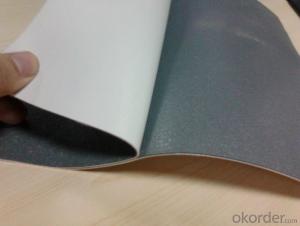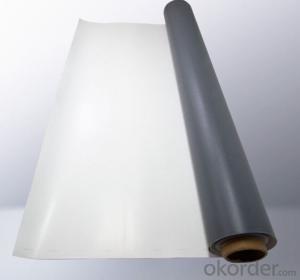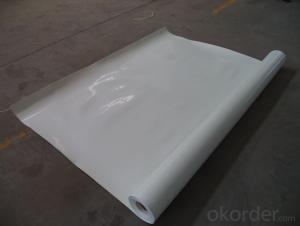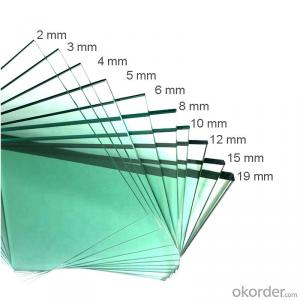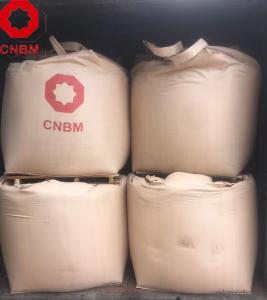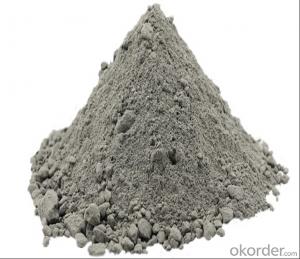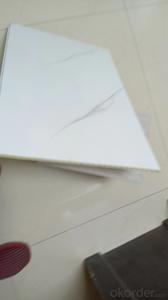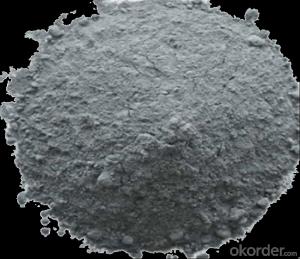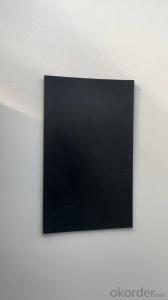TPO Waterproof Membrane Professional Supplier for Thickness 1.2mm 1.5mm 2mm
- Loading Port:
- Qingdao
- Payment Terms:
- TT or LC
- Min Order Qty:
- 1000 m²
- Supply Capability:
- 100000 m²/month
OKorder Service Pledge
OKorder Financial Service
You Might Also Like
TPO Waterproof Membrane
1. Introduction
TPO (Thermoplastic Polyolefin) waterproof membrane is typically based on polypropylene and EP (ethylene-propylene) rubber. TPO mainly contains carbon atoms and hydrogen atoms and does not contain any plasticizers and chlorine elements. It is a beautiful, long-lived environment-friendly product. TPO membranes are installed mechanically-attached, fully-adhered or ballasted.
2. Features
l It’s easy to install with good system integrity, few accessories.
l Excellent tensile strength, tearing resistance and penetration resistance performance..
l Hot-air welding. The peel strength of joint is high. Fast welding speed.
l Environment friendly, 100% recycled, without chlorine.
l Durable hot welding performance and easy to repair.
l Smooth surface, no fading and pollution.
Systems
Thanks to a variety of installation systems, the UltraPly TPO Roofing System can be used on the most challenging rooftops, for both renovation and new built applications.Product
The UltraPly TPO Roofing System consists of a light colored, environmentally friendly UltraPly TPO roofing membrane and a complete range of accessories. This combination offers a unique combination of features & benefits.Technical Information
We provides to distributors, contractors, specifiers and building owners a comprehensive range of technical documents, such as specifications, data sheets, type approvals and detail drawings.Installation
The installation guidelines help the contractor installing the UltraPly TPO Roofing System in accordance with Firestone's requirements.Training
The UltraPly TPO Roofing System is exclusively installed by approved roofing contractors that have successfully completed a training program in one of training centers.Project References TPO
Since the installation of the first UltraPly TPO roofs in the early nineties, hundreds of thousands of square meters of UltraPly TPO membranes have been installed worldwide. The project portfolio includes a selection of major projects.
3. Specification
Length | 20m/roll or customized |
Width | 2.05m |
Thickness | 1.2mm; 1.5mm; 2.0mm |
Type | Homogeneous, Internally reinforced with fabric, With fabric backing |
Color | White grey |
4. Applications
l Roof construction & steel structure of both industrial and civil engineering
l Underground engineering, such as subways, tunnels, air Raid shelter, etc.
l Sewage treatment, dam, reservoir and basement, grain storehouse, etc.
5. Classification
H- Homogeneous TPO membrane
L- TPO membrane with fabric backing
P- TPO membrane internally reinforced with fabric
6. Technical Data Sheet
TPO Waterproof Membrane | Standard: GB27789-2011 | |||||||
NO. | Item | Unit | Value | |||||
H | L | P | ||||||
1 | Resin Thickness on Middle Mesh ≥ | mm | - | - | 0.4 | |||
2 | Tensile Properties | Max. Strength ≥ | N/cm | - | 200 | 250 | ||
Tensile Strength ≥ | Mpa | 12.0 | - | - | ||||
Elongation at Max. Strength ≥ | - | - | 15 | |||||
% | 500 | 250 | - | |||||
3 | Dimensional Stability after Heat Treatment ≤ | % | 2.0 | 1.0 | 0.5 | |||
4 | Foldability at Low Temperature | -40℃ No cracks | ||||||
5 | Watertightness | 0.3Mpa, 2h No penetration | ||||||
6 | Resistance to Impact | 0.5kg*m, No penetration | ||||||
7 | Resistance to Static Loading | - | - | 20kgs No penetration | ||||
8 | Joint Peel Strength≥ | N/mm | 4.0 or membrane broken | 3.0 | ||||
9 | Right Angle Tearing Strength≥ | N/mm | 60 | - | - | |||
10 | N/mm | - | 250 | 450 | ||||
11 | Water Absorption (70℃, 168h) ≤ | % | 4.0 | 3.0 | ||||
12 | Aging in Hot Weather (115℃) | Time | 672h | |||||
Appearance | No bubbles, cracks, layering, sticky, hole | |||||||
Max. Tensile Retention Rate ≥ | % | - | 90 | |||||
Tensile Strength Retention Rate ≥ | % | 90 | - | - | ||||
Elongation Retention Rate at Max. Tensile ≥ | % | - | - | 90 | ||||
Breaking elongation Retention rate | % | 90 | 90 | - | ||||
Low Temperature Flexibility | -40℃ No cracks | |||||||
13 | Chemical resistance
| Appearance | No bubbles, cracks, layering, sticky, hole | |||||
Max. Tensile Retention Rate ≥ | % | - | 90 | 90 | ||||
Tensile Strength Retention Rate ≥ | % | 90 | - | - | ||||
Elongation Retention Rate at Max. Tensile ≥ | % | - | - | 90 | ||||
Breaking elongation Retention rate | % | 90 | 90 | - | ||||
Low Temperature Flexibility | -40℃ No cracks | |||||||
14 | Artificial aging | Time | 1500h | |||||
Appearance | No bubbles, cracks, layering, sticky, hole | |||||||
Max. Tensile Retention Rate ≥ | % | - | 90 | 90 | ||||
Tensile Strength Retention Rate ≥ | % | 90 | - | - | ||||
Elongation Retention Rate at Max. Tensile ≥ | % | - | - | 90 | ||||
Breaking elongation Retention rate | % | 90 | 90 | - | ||||
Low Temperature Flexibility | -40℃ No cracks | |||||||
Remarks: l Resistance to static load is for TPO membranes used on roofing l The time of artificial aging of single-ply roofing membrane is 2500h. | ||||||||
Images of EPDM Rubber Waterproof Membrane:
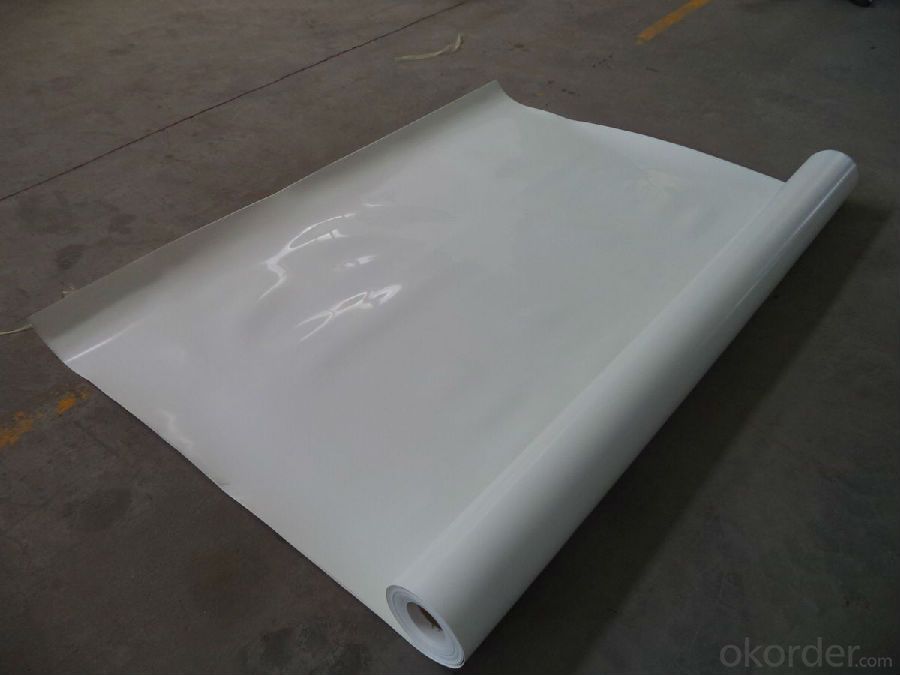
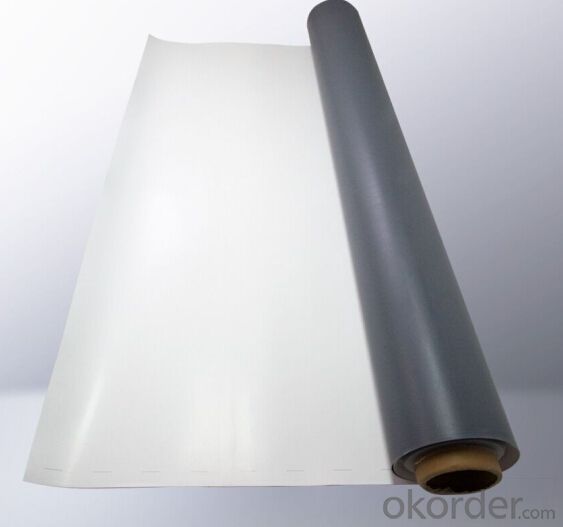
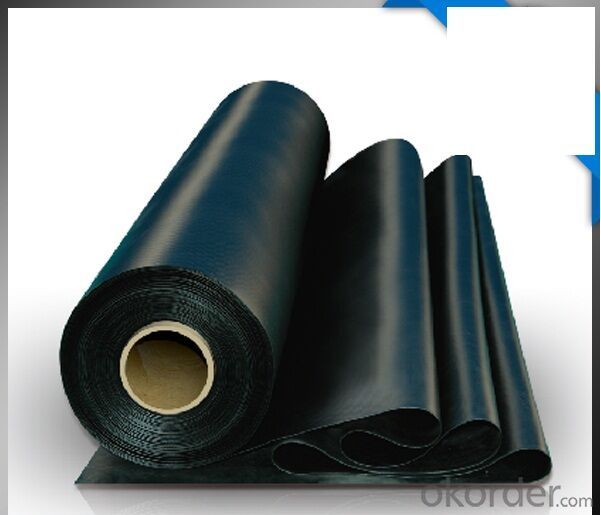
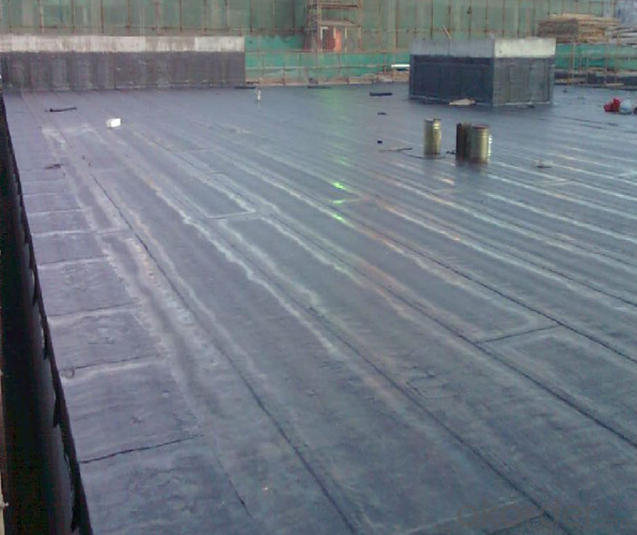
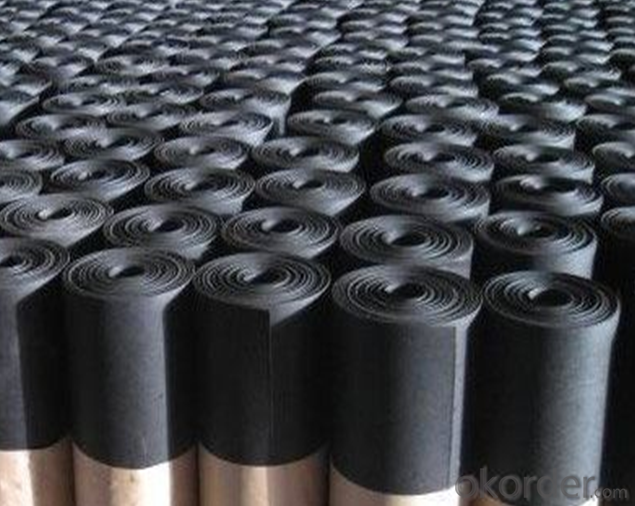
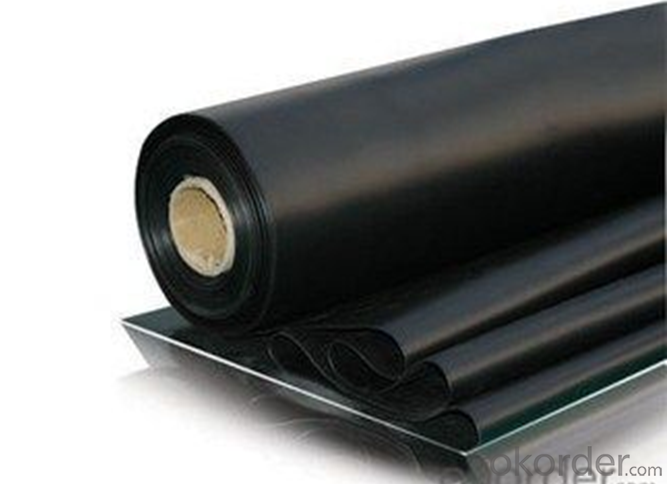
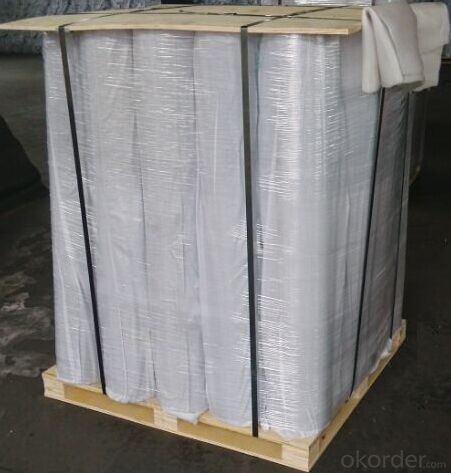
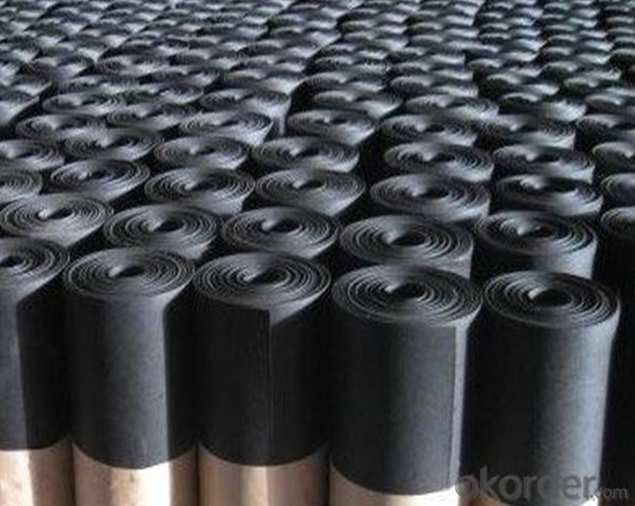
FAQ:
1. What are we supplying?
We are specialized in producing Colorful Asphalt Roof Shingle, SBS/APP modified bitumen waterproof membrane, Self adhesive bitumen waterproof membrane, PVC waterproofing membrane, EPDM rubber roofing membrane, Single Component Polyurethane Waterproof Coating, and Spray Polyurea Waterproof Coating
.
2. How Many years experience do we have?
We have been exported to more than 20 countries in the past 15 years.
3. How long do we usually reply your request?
We always reply our customer within 24 hours.
- Q:Can a waterproofing membrane be used on precast brass surfaces?
- No, a waterproofing membrane cannot be used on precast brass surfaces. Brass is a non-porous material, therefore it does not require waterproofing.
- Q:Can a waterproofing membrane be used on both interior and exterior surfaces of a structure?
- Yes, a waterproofing membrane can be used on both interior and exterior surfaces of a structure. It is designed to create a barrier that prevents water penetration, whether it is applied on the inside or outside of a building.
- Q:Can a waterproofing membrane be used for fountains or water features?
- Indeed, fountains or water features can make use of a waterproofing membrane. Such membranes find widespread use across various applications, encompassing below-grade waterproofing, roofing systems, and even ponds. Their purpose is to establish a barrier against water infiltration, thereby safeguarding the underlying structure against water-related harm. In the context of fountains or water features, a waterproofing membrane serves to avert leaks and seepage, ensuring that the water remains confined within the intended boundaries. Furthermore, these membranes typically possess flexibility and durability, rendering them well-suited for deployment in areas subject to perpetual water exposure and potential movement.
- Q:Can a waterproofing membrane be used for bridges and overpasses?
- Yes, a waterproofing membrane can be used for bridges and overpasses. Waterproofing membranes are commonly used in the construction industry to protect structures from water infiltration, including bridges and overpasses. These membranes are designed to create a barrier between the structure and moisture, preventing water from seeping into the concrete or steel components. By installing a waterproofing membrane, the lifespan of a bridge or overpass can be significantly extended, as it helps to prevent corrosion, concrete degradation, and other damages caused by water exposure. Additionally, waterproofing membranes can also provide protection against other environmental factors such as freeze-thaw cycles, chemicals, and UV radiation. Therefore, using a waterproofing membrane for bridges and overpasses is a common practice to enhance their durability and longevity.
- Q:Are waterproofing membranes suitable for indoor applications?
- Yes, waterproofing membranes are suitable for indoor applications. Waterproofing membranes are designed to prevent water penetration and moisture buildup, making them an ideal solution for areas that are prone to water damage, such as basements, bathrooms, and kitchens. These membranes create a barrier that prevents water from seeping through floors, walls, or other surfaces, effectively protecting the structure from water-related issues like mold, rot, and structural damage. Additionally, waterproofing membranes can also help regulate humidity levels, leading to a more comfortable and healthier indoor environment.
- Q:Can a waterproofing membrane be used in conjunction with drainage systems?
- Yes, a waterproofing membrane can be used in conjunction with drainage systems. The membrane provides a barrier to prevent water penetration, while the drainage system helps to channel and remove any water that may accumulate. This combination ensures effective and comprehensive waterproofing for various applications such as basements, roofs, and underground structures.
- Q:How long does a waterproofing membrane last?
- There are several factors that can affect the lifespan of a waterproofing membrane. Typically, a waterproofing membrane that is installed properly and maintained well can endure for 10 to 20 years. However, this timeframe can be influenced by various elements such as the quality of the membrane material, the extent of exposure to environmental elements, the frequency of foot traffic or other sources of strain, and the overall level of maintenance and care provided. It is important to emphasize that regular inspections and maintenance play a vital role in extending the lifespan of a waterproofing membrane. Furthermore, adhering to the guidelines and recommendations provided by the manufacturer can ensure optimal performance and enhance the longevity of the membrane.
- Q:Are waterproofing membranes resistant to frost damage?
- Waterproofing membranes, in general, exhibit resistance towards frost damage. These membranes are specifically crafted to endure diverse weather conditions, which include freezing temperatures. They typically comprise modified bitumen, PVC, EPDM, or TPO, materials renowned for their exceptional frost and environmental resistance. These materials are engineered to maintain their flexibility and elasticity, even in low temperatures, ensuring the preservation of the waterproofing membrane's effectiveness in preventing water infiltration. Furthermore, meticulous installation methods and regular maintenance can augment the waterproofing membranes' resistance to frost damage.
- Q:Can a waterproofing membrane be used for potable water tanks?
- No, a waterproofing membrane cannot be used for potable water tanks. Potable water tanks require materials that are specifically designed and tested to ensure they are safe and non-toxic for drinking water storage.
- Q:Can a waterproofing membrane be used on modified bitumen roofs?
- A waterproofing membrane is capable of being utilized on modified bitumen roofs. In fact, it is quite customary to apply a waterproofing membrane on top of modified bitumen roofs in order to provide an extra layer of defense against water infiltration. This is particularly crucial in regions where heavy rainfall occurs or where the roof is frequently exposed to water. The waterproofing membrane serves to seal any potential cracks or openings in the modified bitumen roofing system, thereby preventing water from penetrating and causing damage to the underlying structure. Moreover, the waterproofing membrane can also bolster the overall durability and longevity of the roof by shielding it from the detrimental effects of moisture.
1. Manufacturer Overview |
|
|---|---|
| Location | |
| Year Established | |
| Annual Output Value | |
| Main Markets | |
| Company Certifications | |
2. Manufacturer Certificates |
|
|---|---|
| a) Certification Name | |
| Range | |
| Reference | |
| Validity Period | |
3. Manufacturer Capability |
|
|---|---|
| a)Trade Capacity | |
| Nearest Port | |
| Export Percentage | |
| No.of Employees in Trade Department | |
| Language Spoken: | |
| b)Factory Information | |
| Factory Size: | |
| No. of Production Lines | |
| Contract Manufacturing | |
| Product Price Range | |
Send your message to us
TPO Waterproof Membrane Professional Supplier for Thickness 1.2mm 1.5mm 2mm
- Loading Port:
- Qingdao
- Payment Terms:
- TT or LC
- Min Order Qty:
- 1000 m²
- Supply Capability:
- 100000 m²/month
OKorder Service Pledge
OKorder Financial Service
Similar products
New products
Hot products
Hot Searches
Related keywords
